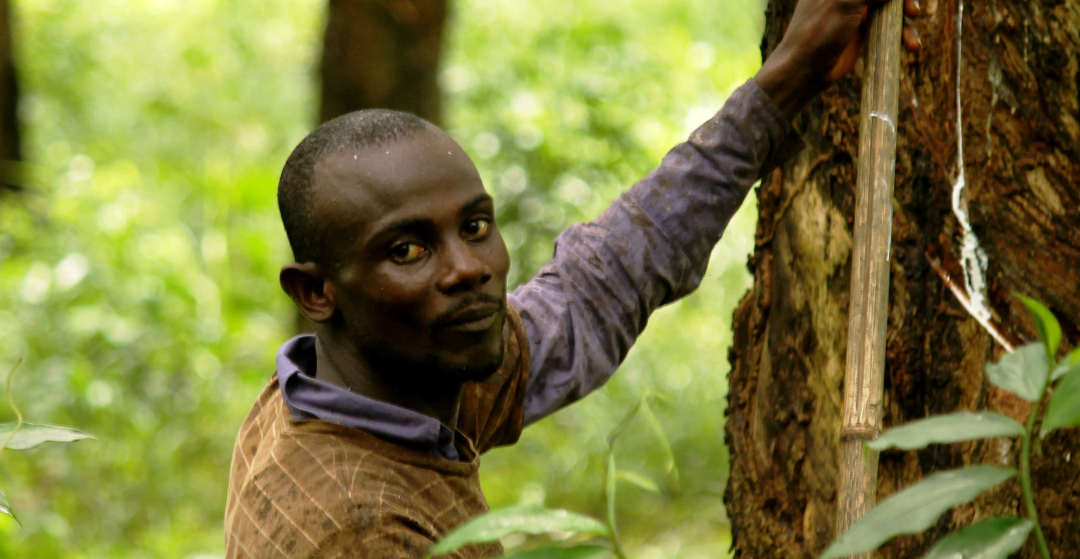Experts seek policy intervention to ban cup-lump exports
Block rubber or TSR processing factories in Liberia are increasingly challenged by a widening shortage of cup-lump in the country. With the recent opening of greenfield factories and capacity addition in the factories that existed from before, the country has the total capacity to produce 165,000 tons of TSR annually. To cater its TSR factories, the country annually needs around 254,000 tons of cup-lump (Measured in wet weight). However, the current level of domestic production of cup-lump is only around 185,000 tons (120,000 tons in dry weight) which represents only 65% of the quantity needed to run the factories. It means, operational efficiency and economic sustainability of the TSR factories in Liberia are increasingly challenged by an acute shortage of cup-lump. The following table helps to understand the gravity of the cup-lump shortage in the country.
| No. of shifts | Capacity of TSR Production (Tons/hour) | Annual Capacity, in tons (25 days/11 months) | Annual requirement of cup-lump (Wet weight in tons based on 65% dry rubber content) | |
| LAC | 3 | 5 | 33,000 | 50,770 |
| Firestone | 3 | 13 | 85,000 | 132,000 |
| Jeety Rubber | 3 | 5 | 33,000 | 50,770 |
| Lee | 2 | 3 | 13,200 | 20,300 |
| Nimba | 0 | 0 | – | – |
| All together | 26 | 165,000 | 253,840 |
Despite TSR factories facing such a huge shortage of raw material, a considerable portion of the domestic production of cup-lump goes out of the country by way of exports. To help the TSR processing factories have domestic availability of raw material, Liberia should immediately impose a total ban of exports. Such a policy intervention assumes significance from a wider developmental perspective on account of the following points:
- TSR processing factories in Liberia are compelled to scale down capacity utilization due to the domestic shortage of raw material. The lower capacity utilization impacts on the operational efficiency, unit cost of production, and global competitiveness of Liberian TSR. Persistent under-utilization of capacity poses a serious threat to the economic sustainability of TSR industry in the country.
- TSR processing factories in Liberia play a crucial role in the country’s rural employment generation, rural income and rural economic development. As an effective tool to strengthen rural economy and uplift the economic well-being of the rural community, government should consider strengthening the TSR processing factories by addressing the shortage of raw material.
- For the economic development of a country, value addition of raw materials should take place within the country. When value addition takes place within the country, it contributes to the economy by way of employment generation, development of ancillary sectors, and higher rural income. The higher rural income triggers rural demand for goods and services, and thereby contributes to the national economy. Higher rural income also contributes to the socio-economic uplift of economically weaker sections. Moreover, exports of value-added products bring much higher foreign exchange than raw materials.
It merits mention that Ivory Coast has imposed a ban on the exports of cup-lump from the country effective from 1 Jan 2024 as a measure to encourage domestic value addition. Due to the ban imposed by Ivory Coast, it is no longer possible for Liberia to bridge the shortage of cup-lump by importing from there. The recent capacity addition in TSR processing in Ghana and other West African countries signals that Liberia will not be able rely on these countries for sourcing cup-lump.
The above points justify the case for the Government of Liberia to ban the export of cup-lump and other unprocessed forms of natural rubber from the country with immediate effect.
#Liberia #BlockRubber #CupLump #RubberPolicy #WhatNextRubber #RuralDevelopment #RuralEconomy #MillenniumDevelopmentGoal #Commodity #ValueAddition #naturalRubber
